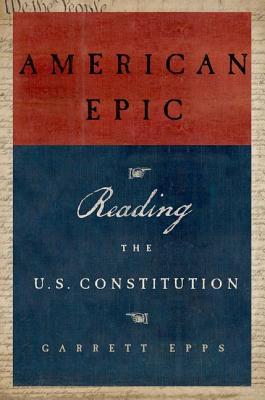Susan Crawford (Cardozo Law School). Captive Audience (Yale University Press, 2013).
"Crawford’s book is the most important volume to be released in the
last few years that describes the sad — some might say embarrassing –
state of the U.S. telecommunications market. Reasonable people can and
do disagree about policy solutions, but the facts are not in dispute. [A] vivid and eye-opening description of what ails America’s cable and
telecom market, … it should be required reading for anyone interested in
tech policy."
—Sam Gustin, TIME
Wednesday, November 27, 2013
Wednesday, November 20, 2013
Animal Trials
Edward Payson Evans (University of Michigan). Animal Trials (Hesperus Press Limited, 2013; first published in 1906).
"Including trials in Germany, France, Switzerland, Great Britain, Scandinavia, and Russia dating back as far as 824, Animal Trials provides a fascinating insight into the bygone era, addressing important social issues and religious questions, which remain just as relevant today such as animal rights and capital punishment. Payson Evans' wry attitude to the material only increases the peculiar nature of the work, making it a truly intriguing read."
—Animal Trials book jacket
Monday, November 18, 2013
American Epic: Reading the Constitution
Garrett Epps (University of Baltimore School of Law). American Epic: Reading the Constitution (Oxford University Press, 2013).
"Epps has written another masterpiece. He takes us on a wondrous journey through the Constitution exploring every word of the remarkable document that so many venerate but few actually read. Even the most devoted student of the Constitution will find much to learn. American Epic is a revealing, thought-provoking, and wonderfully written examination of American's foundational text."
—Adam Winkler, UCLA School of Law
"Epps has written another masterpiece. He takes us on a wondrous journey through the Constitution exploring every word of the remarkable document that so many venerate but few actually read. Even the most devoted student of the Constitution will find much to learn. American Epic is a revealing, thought-provoking, and wonderfully written examination of American's foundational text."
—Adam Winkler, UCLA School of Law
Thursday, November 14, 2013
Angel Island: Immigrant Gateway to America
Erika Lee (University of Minnesota) & Judy Yung (University of California). Angel Island: Immigrant Gateway to America (Oxford University Press, 2010).
"A place of heartrending history and breathtaking beauty, the Angel Island Immigration Station is a National Historic Landmark, and like Ellis Island, it is recognized as one of the most important sites where America’s immigration history was made. This fascinating history is ultimately about America itself and its complicated relationship to immigration, a story that continues today.”
—Angel Island book jacket
Wednesday, November 13, 2013
Hate Thy Neighbor: Move-In Violence and the Persistence of Racial Segregation in American Housing
"Puts an unsparing spotlight on one of the least discussed yet most intractable barriers to full civil rights for all Americans. . . . Stunning and tragic. . . . Hate Thy Neighbor is both empirical and poignant. Her proposals for how to address this enduring scandal will, without any doubt, launch new reflection, new movements, new hope."
—Patricia J. Williams, Columbia Law School
Friday, November 8, 2013
States of the Union: Family and Change in the American Constitutional Order
"A timely, substantive, and deeply engaging book that brilliantly analyzes the ever-changing place of families in American culture and law from colonial settlement to the contemporary debate over the constitutionality of gay marriage."
—David S. Tanenhaus, Boyd School of Law
Tuesday, November 5, 2013
The Wartime President: Executive Influence and the Nationalizing Politics of Threat
William G. Howell (University of Chicago), Saul P. Jackman (Brookings Institution) & Jon C. Rogowski (Washington University). The Wartime President (The University of Chicago Press, 2013).
“The Wartime President offers a compelling, original theory of how war affects presidential power. By demonstrating through rigorous empirical analysis that war empowers the president when it leads the public and members of Congress to focus on national concerns rather than local priorities, William G. Howell, Saul P. Jackman, and Jon C. Rogowski dramatically advance our understanding of the presidency and of our separation of powers system.”
—Eric Schickler, University of California, Berkeley
“The Wartime President offers a compelling, original theory of how war affects presidential power. By demonstrating through rigorous empirical analysis that war empowers the president when it leads the public and members of Congress to focus on national concerns rather than local priorities, William G. Howell, Saul P. Jackman, and Jon C. Rogowski dramatically advance our understanding of the presidency and of our separation of powers system.”
—Eric Schickler, University of California, Berkeley
Subscribe to:
Comments (Atom)
